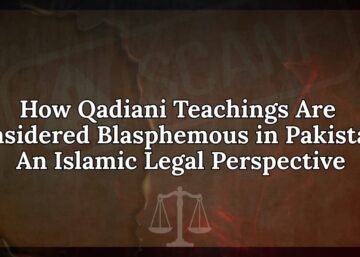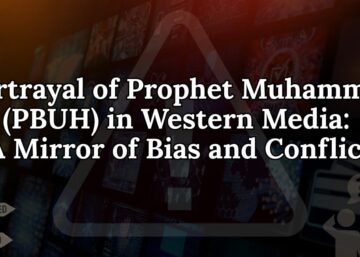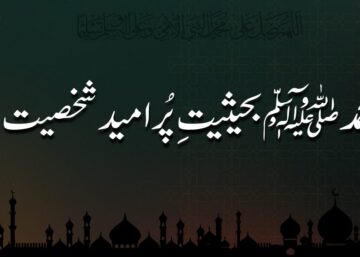The essence of Islam is peace, not just as a word but as a guiding principle. The very word “Islam” is derived from the Arabic root “S-L-M”, which signifies peace, safety, and submission to God. Yet, Muslims worldwide are often misunderstood, misrepresented, and seen through a lens shaped by geopolitical conflicts rather than the true teachings of Islam and the legacy of the Prophet Muhammad (PBUH).
Prophet Muhammad (PBUH): An Embodiment of Peace
The life of Prophet Muhammad (PBUH) is replete with examples of patience, forgiveness, and diplomacy even under the gravest provocations:
Treaty of Hudaybiyyah
When the Quraish of Makkah, after years of hostility, entered a peace pact with the Muslims, Prophet Muhammad (PBUH) accepted even seemingly unfavorable terms just to prevent bloodshed. His goal was not conquest but coexistence.
“No one has ever been more faithful in keeping peace agreements than the Prophet Muhammad (PBUH).”
– Sir William Muir, Life of Mahomet
Conquest of Makkah
When the Prophet (PBUH) entered Makkah victorious after years of persecution, he declared a general amnesty. Despite being in a position of absolute power, he forgave his enemies.
“No reproof against you this day. May Allah forgive you.”
(Surah Yusuf, 12:92)
Taif Incident
After being physically assaulted and humiliated in Taif, when the angel offered to crush the city between two mountains, the Prophet (PBUH) responded,
“No, I hope that Allah will bring forth from their descendants people who will worship Allah alone.”
(Sahih Bukhari)
The Quran: A Book of Mercy and Peace
The Quran repeatedly emphasizes peace and reconciliation over conflict:
- “And if they incline to peace, then incline to it [also] and rely upon Allah.”
(Surah Anfal, 8:61)
- “O mankind! We created you… that you may know one another. Indeed, the most noble of you in the sight of Allah is the most righteous.”
(Surah Hujrat, 49:13)
This divine message upholds mutual respect, dialogue, and unity, the principles that are ingrained in Islamic tradition.
Mahatma Gandhi once remarked:
“I wanted to know the best of the life of one who holds today an undisputed sway over the hearts of millions… I became more than convinced that it was not the sword that won a place for Islam… It was the simplicity, the utter self-effacement of the Prophet. It was the rigid simplicity, the intense devotion to his friends, his intrepidity, his fearlessness, his absolute trust in God.”
Young India, 1924
Bosworth Smith (Christian Scholar) stated that:
“He (PBUH) was Caesar and Pope in one; but he was Pope without the Pope’s pretensions, Caesar without the legions of Caesar… He was the Prophet, the Reformer, the Soldier, the Conqueror, the Lawgiver, the Preacher.”
Recent India-Pakistan Tension:
Amid the recent tensions, the role of the Indian media raises serious concerns. Sensationalist reporting, unverified claims, and inflammatory narratives often dominate headlines, fueling public anger and distorting facts. Instead of promoting calm and truth, much of the coverage escalates hostility and silences voices advocating peace. In times of conflict, media must act responsibly highlighting dialogue, facts, and the shared humanity on both sides rather than fanning the flames of nationalism.
Meanwhile, the tragic loss of innocent lives in Pakistani-administered Kashmir due to unprovoked shelling underscores the human cost of these hostilities. Civilians, including children, fall victim to a conflict they neither started nor support. These deaths serve as a stark reminder that war rhetoric and misinformation do not remain confined to screens; they manifest as grief in real homes. Upholding justice and promoting peace, as taught by Prophet Muhammad (PBUH), requires truthful journalism and a collective rejection of hatred.
The Real Battle Is Against Misconceptions
In a world filled with distorted narratives, it becomes essential for Muslims to reflect the Prophetic legacy through their actions and speech. At the same time, global audiences, especially in India, must differentiate between political agendas and religious realities.
Let the world remember: Muslims are not a threat to peace; they are bearers of it. They follow a Prophet who forgave his enemies, a Book that commands compassion, and a history that speaks louder than propaganda.
“The Prophet was the most merciful of men… his tolerance was so great that he never returned evil for evil.”
Edward Gibbon, The Decline and Fall of the Roman Empire
It is time for India, Pakistan, and the global community to embrace the true message of Islam: Peace through justice, love through understanding, and strength through unity.



